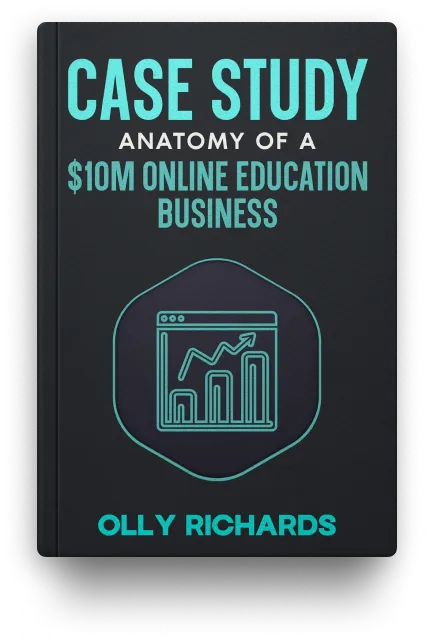Back when I was teaching English in Japan, I once got drafted in to teach a new class.
It was a Saturday, 2pm.
“Advanced Plus 4”
A lump formed in my throat.
Advanced? Plus? 4?
I wasn’t quite sure what it meant, but one thing was for sure… it sounded very advanced.
Now, in Japan, this is unusual.
The Japanese are not great at English. So, as an English teacher, most classes you teach are for beginners.
Intermediate at most.
Only if you teach business English, or perhaps a postgraduate university course, would you encounter actual advanced students.
But this?
This was a casual Saturday afternoon class in a local language school.
Advanced… Plus??
I was nervous.
These guys are going to be demanding! What on Earth am I going to teach them?
I spent ages preparing the lesson.
I looked at the course book, but the senior teacher told me:
Yeah… they don’t really use the book.
Oh, great.
Now I had to create something new.
Meeting a new class for the first time is one of those things for a teacher where you always have some level of butterflies in your stomach. It never really leaves you, no matter how experienced you get.
Will they like me?
Who are the dominant characters in the group?
Will they want their old teacher back?
Anyway…
The fateful day arrive.
The day of the class.
I walk in, to find five 60-somethings sat around a table.
Smiling faces.
Lots of laughs.
They know each other well.
This was “Advanced Plus 4”.
I sit down, start chatting away and introducing myself, breaking the ice… throwing in a bunch of English slang to show them that they might learn something from me.
They looked back at me.
Confused.
They hadn’t understood a thing.
Then they started talking, one by one, introducing themselves.
Now it was my turn to be confused.
Their English was… average at best.
Mistakes everywhere.
Strong accents.
Very Japanese way of explaining things.
I was confused…
Had I found the wrong class by mistake?
Anyway, I immediately discarded the super-advanced lesson plan that I’d created and scaled it right back.
I improvised a bog-standard intermediate lesson instead.
It went fine.
The students were super nice.
They liked me.
A good time was had by all, and I dare say I taught them a thing or two.
After the lesson, I tracked down the senior teacher.
“What the hell was that?” I asked.
He explained:
So, this group has been coming to the school every Saturday for the last 15 years. They love it. They’re great friends.
I explained that their English progress seems to have stalled sometime in 1996.
He continued…
See, they’ve taken every course we have. They’ve done it all, from beginner to advanced. So we have to keep inventing higher and higher “levels” so that they feel they’re making progress.
Hah!
Everything suddenly made sense.
Not everyone is studying for a high-stakes exam.
Sometimes, people just want to keep exercising the old grey matter.
See their friends.
Have some fun.
All they need is an excuse to keep learning.
This group had done beginner, intermediate, advanced… evry level the school had to offer…
So they literally had to invent new advanced levels for them, to make them feel like they’re doing something “new” and not repeating ground.
Hence the “Advanced Plus 4” class.
This stuck with me.
Years later, when building my programmes at StoryLearning, we debated whether to make advanced level courses.
My team said:
Hardly any students get beyond intermediate level. I don’t think Advanced makes sense.
But I knew different.
I knew that it wasn’t about the level students were actually at.
What I knew from my English teaching experience was that students are aspirational.
They want to punch above their weight.
They might not be ready for “Advanced”, but they want to know what it’s all about!
So we made the Advanced programmes, and they were some of our best performing ever.
More recently, I had the same discussion with an entrepreneur I mentor about designing some more robust programmes.
She objected:
Most of our students are beginners!
That may be true, but I knew they would want to know the mystical secrets of the advanced stuff.
So she made the advanced programme.
And it performed as well as all the others.
Lesson is:
Your students are aspirational.
Don’t prevent them from studying to a higher level just because you think they’re not ready, or there aren’t enough of them.
The beginners will take intermediate.
The intermediates will take advanced.
And the advanced… well it turns out they’re take Advanced Plus 4.
Something to ponder.
Namaste,
Olly

